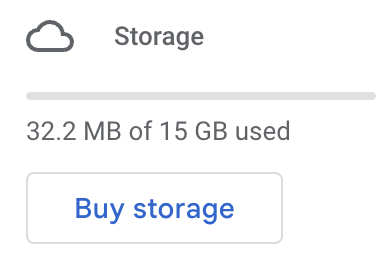A gigabyte (GB) is a unit of digital measurement used to describe the size of files and the capacity of storage devices like hard drives, smartphones and cloud platforms. In decimal terms, a gigabyte is equal to one billion bytes in data size or storage capacity.
From day to day, there are many units of measurement we come across, whether measuring the length or width of an object, weighing how light or heavy something is, or describing the temperature outside. Like tangible items, things in our digital realm have units of measure — like gigabyte — that we use to describe their sizes as well.
How Many MB Are in a GB?
In decimal measurement, there are 1,000 megabytes (MB) in one gigabyte (GB). You can do additional conversions using simple math.
- 1,000 bytes = 1 kilobyte (KB)
- 1,000 kilobytes (KB) = 1 megabyte (MB)
- 1,000 megabytes (MB) = 1 gigabyte (GB)
- 1,000 gigabytes (GB) = 1 terabyte (TB)
- 1,000 terabytes (TB) = 1 petabyte (PB)
- 1,000 petabytes (PB) = 1 exabyte (EB)
Why Do We Use GB?
In general, we use units of measure to define the magnitude of something in a consistent way. The same holds true for gigabytes, which we use as a consistent way to measure the size of a file, program or digital storage capacity.
If you consider your personal computer, you’re likely aware that your hard drive, where you save files, has a maximum amount of storage. You’ll notice that your system’s capacity is typically described in gigabytes, which helps you understand how much available space remains. A standard computer may have around 250 GB of available space. Each time you download a file or program to your computer, some of that available capacity will be used.
What Are Alternatives to GBs?
Like other units of measurement, we can convert gigabytes into larger or smaller units depending on the use case. If you’re referring to a tiny amount of digital information, it may not make sense to present the size in gigabytes. Similarly, other units of measure are better suited for describing a large amount of digital information.
Some alternate units of digital measurement include:
- Kilobyte (KB)
- Megabyte (MB)
- Terabyte (TB)
- Petabyte (PB)
- Exabyte (EB)
What Are GB in Phone Storage?
As mentioned earlier, one example use case for a gigabyte is to describe the capacity of a computer’s hard drive. However, there are many other situations where we use gigabytes to understand the size of a digital object or storage capacity.
A common example many will be familiar with is a smartphone. Today’s smartphones typically have 64 or more gigabytes of storage capacity available for use. Each time you send and receive texts, take photos and videos or install mobile applications, you’re using available storage.
Consider an iPhone. You can view the phone’s storage in Settings under the “General” menu. The image below shows how Apple uses the gigabyte unit of measure to describe that, of the 128 gigabytes of space available, 70.1 of those gigabytes are used by mobile apps, the operating system (iOS), photos, system data and more.

What Are GB in Cloud Storage?
Another popular use case is the use of gigabytes to describe cloud storage, like iCloud or Google cloud storage. Those who have Gmail accounts will notice when you log into your email account, you can see a display showing the amount of cloud storage available. The below image is an example of how Google storage displays the capacity of a cloud storage account. This particular account has used minimal storage, which is shown in megabytes, of the 15 available gigabytes. Knowing there are 1,000 megabytes in a gigabyte, 32.2 megabytes can be converted to gigabytes by dividing it by 1,000. So, this person has used 0.0322 gigabytes of Google storage.

Frequently Asked Questions
What is a gigabyte (GB)?
A gigabyte (GB) is a unit of digital measurement equal to one billion bytes, used to describe file sizes or storage capacity.
How many megabytes are in a gigabyte?
There are 1,000 megabytes (MB) in one gigabyte (GB).
What units are smaller or larger than a gigabyte?
Smaller units of digital measurement than a gigabyte include:
- Bytes (1,000,000,000 bytes = 1 GB)
- Kilobytes or KB (1,000,000 KB = 1 GB)
- Megabytes or MB (1,000 MB = 1 GB)
Larger units of digital measurement than a gigabyte include:
- Terabytes or TB (1,000 GB = 1 TB)
- Petabytes or PB (1,000,000 GB = 1 PB)
- Exabytes or EB (1,000,000,000 GB = 1 EB)





